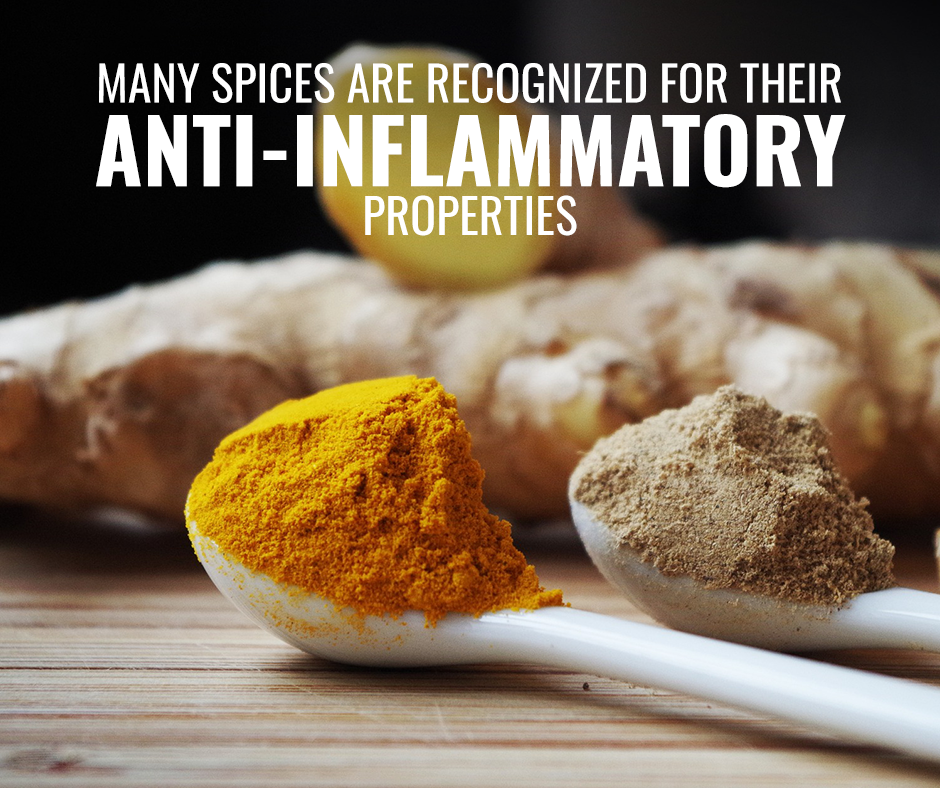This post may contain affiliate links which won’t change your price but will share some commission.
Inflammation is common, everyone experiences it inside and outside of their body. Acute inflammation can be caused by an illness or injury and chronic inflammation can be triggered by autoimmune disease or pollutants. Sometimes inflammation is helpful. When tissue is injured, swelling helps healing cells do their work, however, some inflammation isn’t helpful and leads to pain, fatigue, and more.
Medication can help with reducing inflammation, but there are also natural ways to combat inflammation. The foods we eat can have anti-inflammatory properties and many spices aid in reducing inflammation too.
Choose Anti-Inflammatory Foods for Better Health
Managing inflammation in the body is easier when you choose anti-inflammatory foods. Many foods rich in Omega 3 fatty acids like oily fish can help reduce swelling. Additionally, dark green leafy vegetables, dark chocolate, deep red berries, and healthy oils like olive and walnut are known to reduce inflammation.
The foods you choose can make a big impact on inflammation, but you can also take things a step further by adding anti-inflammatory spices to your recipes. Many spices are recognized for their anti-inflammatory properties, plus they taste delicious and enhance the flavors of meats, fish, and vegetables.
Common Anti-Inflammatory Spices and Their Uses
Whether fresh or dried, a wide variety of spices can help reduce swelling, help ease pain, or prevent inflammation altogether. Consider these common anti-inflammatory spices-
Turmeric- Turmeric is widely known as a chief spice in the aid against inflammation. Curcumin is the key compound found in turmeric that may reduce inflammation in the body. Turmeric is commonly used in the Indian culture and tastes great in a variety of foods.
Black Pepper- Black pepper is commonly used to ‘spice up’ your dinner plate, but its benefits go beyond adding some heat to your food. The compound piperine may aid in reducing chronic inflammation and black pepper is complimentary to turmeric in reducing swelling. Additional benefits include antibacterial and antioxidant properties.
Cayenne- If you really enjoy heat, cayenne contains capsaicinoids which help fight inflammation and help aid in digestion. Cayenne and other chili peppers are an excellent way to manage inflammation or prevent it altogether.
Ginger- Ginger is great for adding flavor to savory or sweet dishes. Also used to fight nausea, headaches, and infections, ginger is used in a wide variety of cuisines from Asian dishes to ginger ales.
Cinnamon- Everyone knows gut health helps reduce inflammation. Cinnamon contains prebiotic properties that aid in digestion and help keep the gut biome on track.
Rosemary- Rosemary is a traditional spice used in Italian and Mediterranean diets. This spice is great in aiding your body’s GI tract and digesting fermented foods.
Adding one or all of these, and other, anti-inflammatory spices to your spice cabinet can help your food taste great and stabilize your health with every bite you take.


Leave a Reply